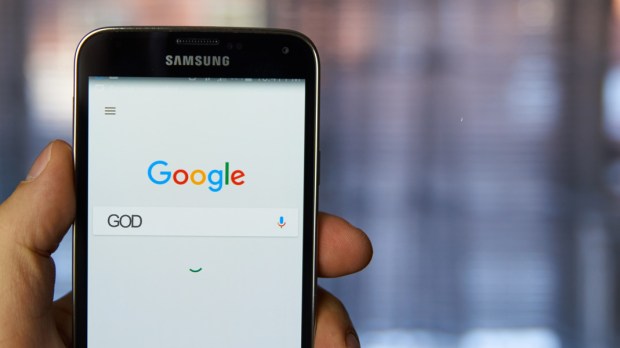Lenten Campaign 2025
This content is free of charge, as are all our articles.
Support us with a donation that is tax-deductible and enable us to continue to reach millions of readers.
One of the questions in the old penny catechism was “Where is God?” And the answer was “God is everywhere.” Today one can replace God with the word Google and the answer would be equally valid.
It’s mind-boggling to see how omnipresent Google and similar online ventures have become in our lives. They track our every action – they see what we are buying, what we are watching, whom we are texting and what we are posting. From a certain perspective, the vision of The Matrix is not far from reality. We have become binary codes of information in the vast inter-connected ocean called the internet.
All our devices are seamlessly synced. For convenience’s sake, that’s great, but every device more ably tracks us; spies on us, if you will. Recently I checked for train tickets and schedules and when next I logged into Facebook, SURPRISE! an ad for a train journey to the same location I sought popped up on my newsfeed.
These days, when I buy a ticket online, the dates are automatically synced into my Google Calendar. I go on to Amazon and some very bewildering suggestions turn up on the home page. How did they know I was thinking of buying that?
Is this really something we should be so complacent about getting used to?
A professor solemnly told us “Whenever you use an online service or program for free, YOU are the product!” It’s true. Each time we agree to the terms and conditions before using a service for free, we sign off all our personal information, contacts, pictures and well, whatever there is to know of us. This information is then sold to advertisers at a good price, so that they can precisely target you, knowing your interests, attitudes and online shopping habits.
Which brings me back to God and Google. Whenever we have a query about something, a priest friend of mine here pulls out his iPhone and says “Let’s ask god-google.” He’s not kidding. Isn’t that the first place we go when we want to find information? You are more likely today to ask Google how to pray than to actually go ask a priest the same question.
Surfing around on the web, I actually came across a website devoted to the “Church of Google.” It offers apologetics on the divinity of Google, along with the “10 commandments of Google” and the “Our Google” prayer. Whether received in fun or not, the very notion of such a site should jar us. When Nietzsche famously quipped “God is dead,” little did he guess that God would simply swap His mystical body for a virtual one.
Says Alan Cohen, a V.P. of Airespace, a Wi-Fi provider:
”If I can operate Google, I can find anything. And with wireless, it means I will be able to find anything, anywhere, anytime. Which is why I say that Google, combined with Wi-Fi, is a little bit like God. God is wireless, God is everywhere and God sees and knows everything. Throughout history, people connected to God without wires. Now, for many questions in the world, you ask Google, and increasingly, you can do it without wires, too.”
I admit to being a little melodramatic here, but our virtual freedom to do so many things online — to transcend physical and time limitations — actually scares me a little. Instead of feeling freed, I feel caged, which only makes me realize that no matter how much technologies may advance, it is (and can only be) the One True God who can give me true freedom and happiness.
- God loves us unconditionally and gives to us freely. He does not force us to hit the “I Accept” button before we can ask something of Him.
- He died for all of us equally, not only for those who had bought the “Premium” package.
- Every aspect of God’s Love is accessible to us free of charge; He doesn’t charge a single penny nor does He sell us off to the highest bidder.
Ask yourself: all these devices that you have, the power of being perpetually connected online — is it freeing you? Does it make you feel lighter and happier? Or do you feel more burdened trying to keep up?
I’m not trying to demonize Google. It’s just a company. But we need to be careful before getting sucked up completely into its matrix. The machine defines you only as much as allow it to.
One of my friends was trying to mess with Siri (Apple’s virtual humanoid). He asked her “Siri, do you believe in God?” She replied “I recommend that you ask your spiritual questions to someone more qualified to comment. A poor computational knowledge engine like me, no matter how powerful, is not capable of providing a simple answer to that question.”
It’s a good answer. If you have some pressing questions to ask about your life and faith, ask your parents, your spouse, your best friend, or your priest. Ask God!
Don’t ask Google, or lose sight of the fact that, in the end, Google is the creation of mortals and is forevermore subject to human elements and human error.
Fr Joshan Rodrigues is a priest from the Archdiocese of Bombay, Mumbai, India. He is currently at the Pontifical University of the Holy Cross in Rome, studying Institutional and Church Communications. Reading, traveling, people and social media are his passions.

